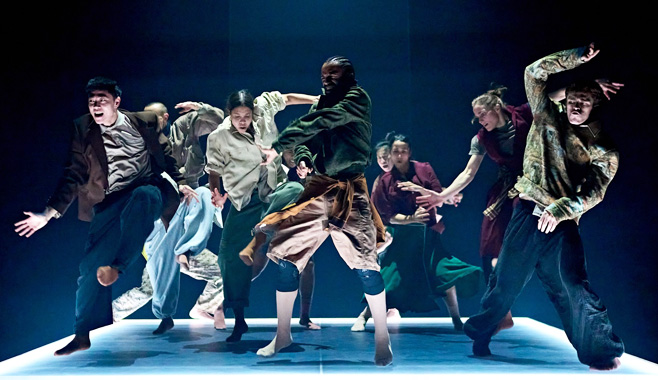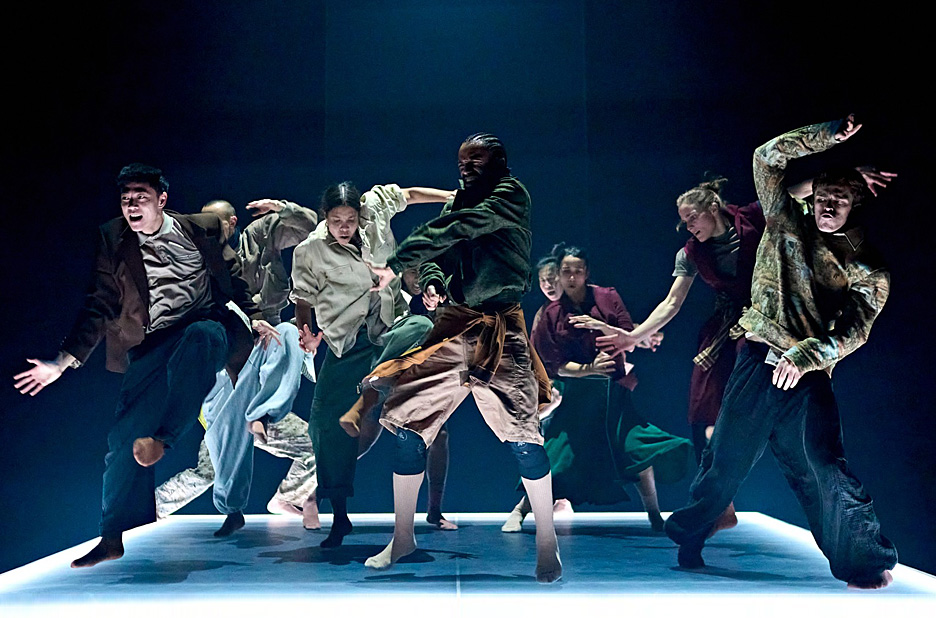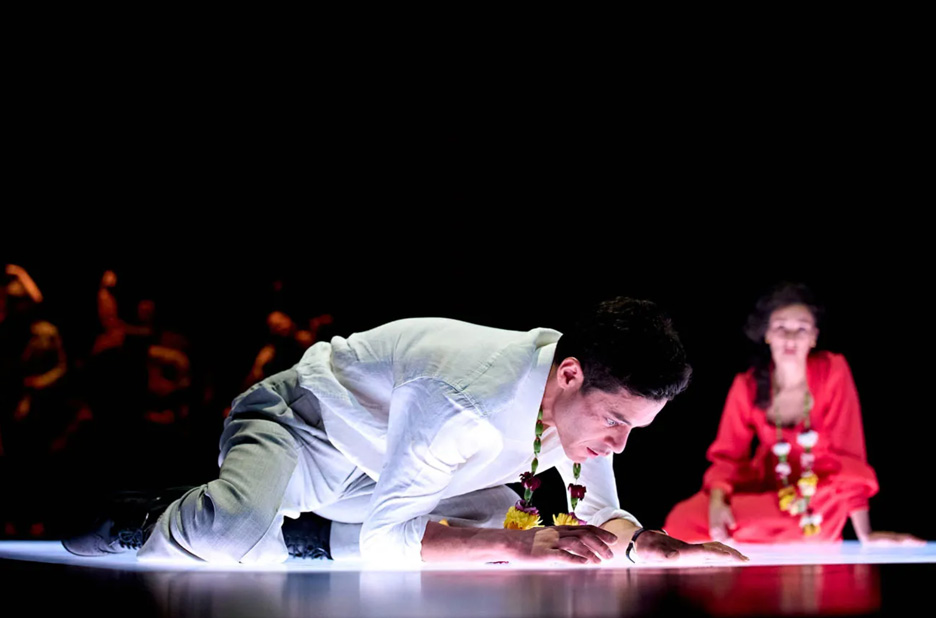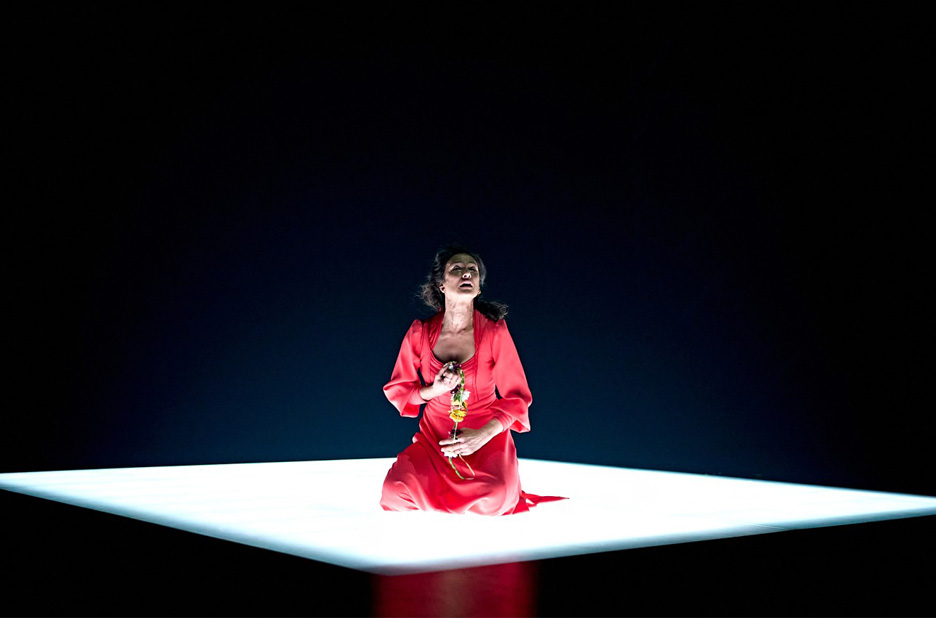Theatre
Oedipus
The Old Vic, London
3/5
Exciting dance cannot rescue poor adaptation
This shallow adaptation with a miscast lead still offers many mesmerising theatrical moments in what appears to be an attempt to woo younger audiences with shorter attention spans. The most arresting addition to the interpretation of this ancient play are Hofesh Shechter’s impressive dancers moving to throbbing music. Standing in for the antique chorus, they successfully bring to life the ritualistic primeval masses bending to the will of the group in a movement that is beautiful and exciting to watch but also successfully represents the terrifying abandonment of any individual or dissenting thought. But there is just too much of it, it seems that after every short scene with dialogue, there is a much longer dance scene. And the dialogue and the dance do not connect. The dance brings the visceral, but the dialogue and acting have none. And we are talking about Oedipus, the most visceral play of all.


The play is co-directed by Matthew Warchus and Hofesh Shechter, the latter responsible for the choreography and music, so this separation of dance from the rest of the play simply appears to be a result of co-directing via Zoom perhaps? The play would have benefited from some cross-contamination between the two styles of directing.
Rami Malek is not suited to being on stage, he has no voice, nuance or presence and is completely upstaged by the rest of the ensemble, most notably the excellent Indira Varma playing Jocasta and Nicholas Khan playing Creon. There is an almost laughable moment when Oedipus addresses the crowd for the first time followed by Creon, when the shocking disparity of the impact of their voices is laid bare. There is no connection at all between Oedipus and Jocasta, they barely touch, and the scene when they hug is uncomfortable in its resemblance to inept teenagers in a school play. I was hoping that Malek’s weirdness would be used to his advantage in portraying the sociopath that Oedipus could be thought to be, but not at all, he is just simply too flat for that. Unfortunately the result is that other excellent actors such as Cecilia Noble as Tiresias have no centre to revolve around and spar with which diminishes the impact of their performance. When his origins are revealed, Oedipus suddenly activates and appears to ad lib in a scene of extraordinary glibness which only confirms the play’s declining trajectory.

Ella Hickson’s dialogue is too banal in places even for a seasoned actor like Indira Varma. Transforming the plague devastating Thebes into draught is a good idea, and works very well on the set, but the dynamic between the characters is insufficiently refined. That Jocasta is allowed to live and escape in a modern reimagining of her fate feels satisfying to me after a lifetime of watching women being sacrificed on and off the stage, but with her exit the narrative becomes even more disjointed and irrelevant.
Although the dance sections were powerful, mesmerising and beautifully choreographed – and I must mention Adam Khazhmuradov and Jian-Hui Wang who stood out – the mood did not change substantially to parallel the action. Suddenly switching to using classical music to convey a moment of appeasement when the rains come was superficial and not integrated into the play with sensitivity.

Rae Smith’s set works stunningly well with Christopher Shutt’s sound and Tom Visser’s lighting to create an arid blank and slightly ominous atmosphere which would have been a perfect foundation for a better staging. It is tantalising to think what this play would have been like with a different lead. Scenes of speeches in front of crowds with background chanting were eerily suggestive of many recent and distant dangerously volatile moments in history. But even those opportunities of parallels with the politics of the present were insufficiently developed.
The Old Vic continues its low-brow populist quest, but there is no reason why all the successful modern creative elements, the dance, the set, the sound, the lighting, cannot work together with a refined understanding of the text and dialogue. It is simply an opportunity missed.